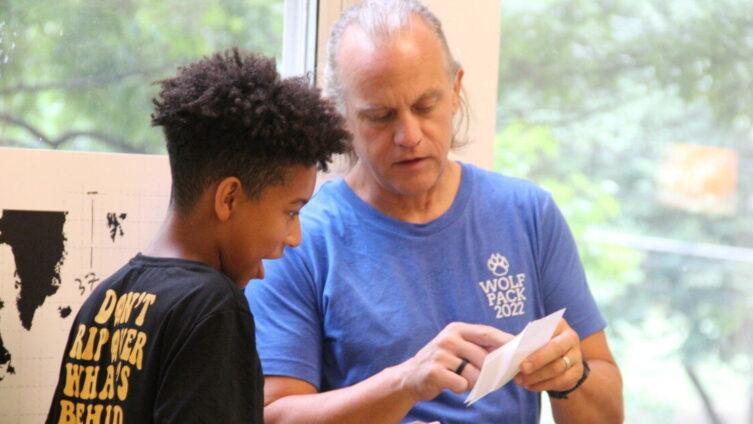
Allen Broyles is parent to Christopher ’23 and Catherine ’16.
I suspect that no parent has ever held their newborn infant in their arms, gazing lovingly in their eyes, and had the thought, “I hope they’ll be able to solve the quadratic equation.” I also suspect that, at the end of a life well-lived, no one’s epitaph has ever read, “She Kept A Clean And Organized Locker.”
In these moments of reflection, when we are most in touch with our deepest aspirations for our children, we hope for them to live a life of love, relationship, passion, joy, impact, and meaning. I have conducted workshops with hundreds of teachers and parents over the years, and as part of these, I’ve asked them to share what they most want for their children or students’ lives. Not once have I heard an answer that was about curriculum content or academic skills. Everyone spoke of their dreams for their children.
I believe that our relationship to schooling in the broader culture causes us to lose focus on what we value most. Our fears about what comes next in the schooling process and concern over how our kids will do make us worry and stress about tests, reports, next steps, admissions and, eventually, college applications that will be here before we know it. We get swept up in the intensity of the system and sometimes lose sight of what we most value for our kids. Still, even when we honor those values, it’s also obviously important that they do well within the system of schools. But does it have to be a trade-off?
The Children’s School asserts that raising kids who are caring, connected, inventive and joyful is not at odds with developing strong abilities in writing and math or learning deep content knowledge and skills that students need to thrive in school. As TCS students move from their early years through middle school, they continue the building the foundation of nurturing, belonging and play throughout the experience, even their academic skills build. This raises up graduates who are not only ready for their next steps in high school, but who are equipped to identify problems that need solving, who can apply those skills to the world they live in, and who have a desire to make an impact on their world.
Common sense seems to say that the job of school does and should shift as students get older. Certainly the early focus on character, play and exploration has to give way to rigor, academic skills, curriculum content, testing and a focus on future advancement. But this too often comes at the expense of student passions, real-world engagement, intentional community, and relationship. At TCS, this shift is not only not inevitable, but is, in fact, counterproductive if we want students to thrive in the long run. In the Middle Grades program, even as the students are learning algebraic concepts (yes, they learn the quadratic equation), they are still playing with their little buddies, they are outside and active a few times a day, and they are out in the community engaging with issues of inequity and applying their knowledge and skills to those problems.
TCS has a strong history of our students being accepted into their school of choice across a range of schools, and those schools tell us that we send connected, resilient, and resourceful kids. Even before TCS expanded to eighth grade, TCS graduates embodied the 2015 strategic plan’s portrait of a graduate:
TCS graduates are self-aware, empathetic, purpose-driven citizens, who are engaged with the world around them and prepared to help shape that world for the good. They are strong self-advocates whose passions, cultural sensitivity and curiosity drive lifelong learning. They have a proven history of defining problems and implementing innovative solutions in a collaborative way. Our graduates are courageous, hungry and joyful learners, empowered with critical intellectual and communication skills.
By giving students time to develop strong thinking and academic skills, and pairing that academic work with strong values of play, innovation, belonging and community engagement, TCS is not only preparing students to thrive in the system of schooling, but, more importantly, are doing so in an environment that imparts the values each day that truly resonate with our deepest aspirations for their lives, both for now and for their future lives beyond school.









